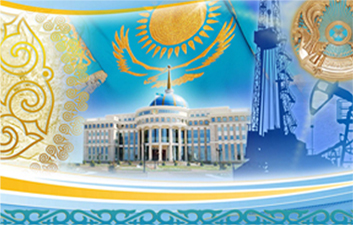Mission statement
"It's not a people unable to the market, it's what bad environment provided by Government they're faced", F.Hayek, "The Road to Serfdom"
Founded in 2013 by Ph.D. Kairbek ARYSTANBEK following the former Bureau and later the Agency for economic analysis, the Institute for economic policy (IEP) is an NGO ready for a new emerging challenges, with strong aproaches in reports, papers, recommendations, suggestions or any kind of economic research.
Our scientific activity is devoted specifically for impoving quality of economic policy and coordination among Administration, Government and National Bank. IEP makes every effort to ensure the accuracy and the constistency of all the information contained in reports in favor of customers expectations.
In the frame of economic events analysis there is a conspicuously lack of any suggestion for making a "gradual approach" (GA) integral to the guiding theme of a coherent national economic security policy. IEP sees the GA as a way to best understand the two decade economic reform drowbacks, more specifically industrialization attempts and strategic programs like the SPAIID, the Productivity 2020, the Self-made 2020 an so on.
IEP is committed to the next strategic, non-political goals:
- articulate structural shortcomings and fill gaping holes of a landlocked country's economic development by applying a gradual stages-based approach in favor of the national economic security, given the dutch disease's aftermath;
- protect the freedoms of economic and political life by any scientific means and help community to better understand the role that economic policy might play to overcome such problems;
- cooperate worldwide in advancing and making forward knowledges, experiences, theory and practice of economic growth;
- promote sustainable environment for economic freedoms, more specifically reduce figures of extractive industries to avoid dutch disease's side effect;
- equip emerging leaders with modern methodologies, toolbox and leverage of macro-economic scence, illuminate, educate and train those inside and outside of government positioned and called to take on such issues in a globalized and deeply integrated age;
These kinds of questions took on greater significance in the context of economic and monetary policy practice of former Soviet republics amid the Eurasian Alliance launched.
The Institute's proposals and technologies are bound for bodies, administrations, business and private sector in order to improve budget and tax policy, to reduce public expenditure, to make best monetary and exchange rate policies, to develope property management, intergovernmental fiscal relations and foreign trade.
Institute performes various studies in corporate governance, social area, deregulation, regional development and small towns issues, as well as key sectors of industry and agriculture to reduce share of extractive ones.
Besides the Institute makes evaluations of investments and political risks in the Central Asia and the CIS.
Primary apeas of activity:
- R & D for strategic management and forecasting, for regional and sectoral economy, for innovative activity;
- business consulting, project and company management;
- monitoring very macro-economic process and forecasting;
- geo-economics and military strategy;
- regional development strategies;
- forecasting and analytical research in favour of big businesses and Government;
- assessment for banking sector;
- oil and gas sector;
- shadow economy;
- independent assessment for the national power capability of the State, for national and economic security;
- build a system of measures and crisis management tools to ensure economic security of companies;
- analyse effectiveness of Government, of National Bank and other public bodies in economic policy.
- prepare and fulfill events (forums, round tables, etc.)
About IEP
Overview
Endorsements
Frequently Asked Questions
Staff
Partners
Available Opportunities








